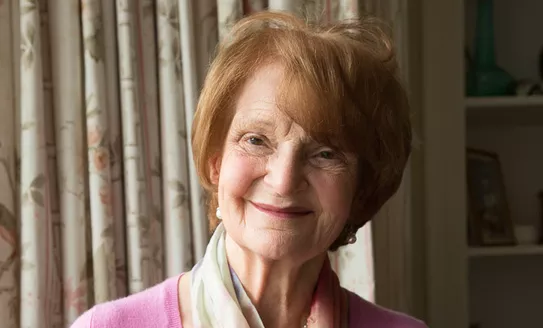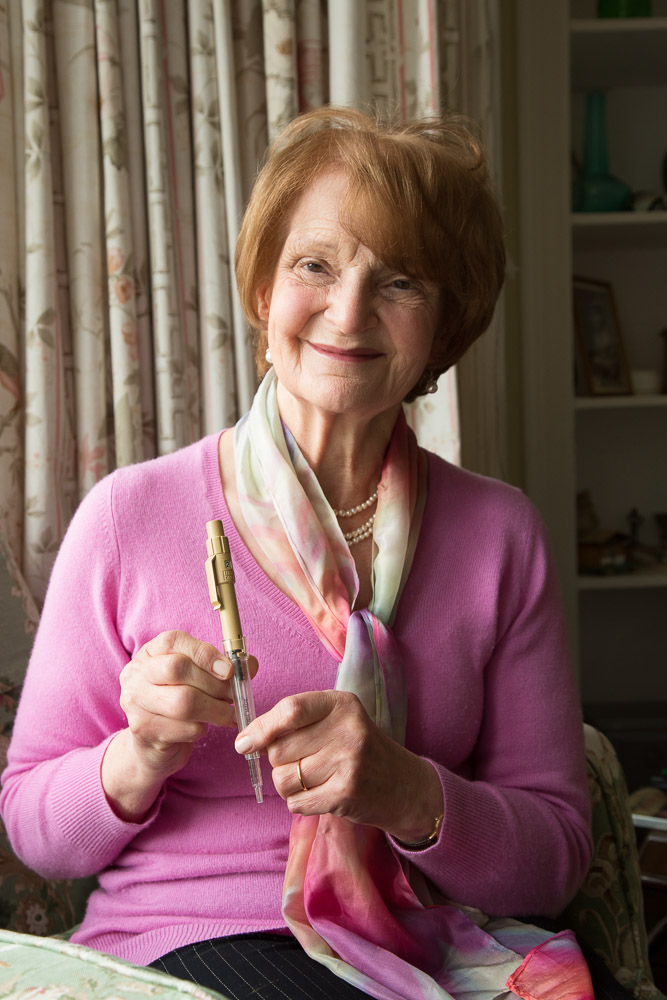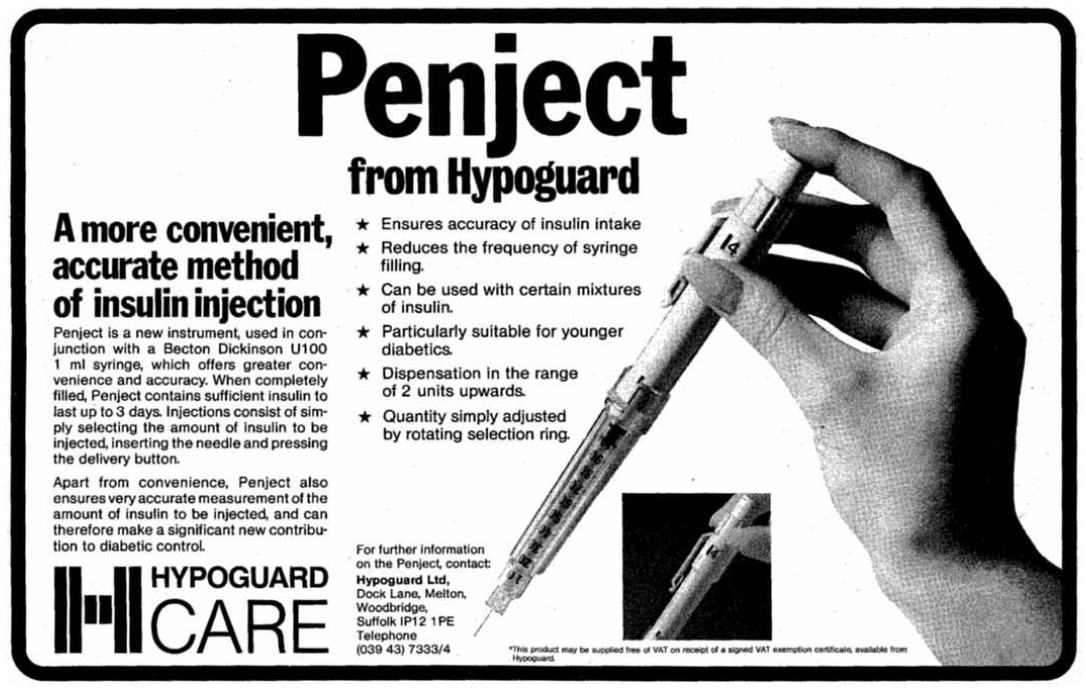
Congratulations to Dr Sheila Reith, who has been awarded a CBE in recognition of the life-changing impact her work has had for people living with diabetes.
Sheila’s incredible legacy includes her idea and research to develop the world’s first insulin pen. It made life with diabetes radically simpler and has been used by millions all over the world.
Injecting insulin used to involve drawing it up from a vial and steel needles that had to be sterilised, sharpened and reused. Sheila knew there had to be a better way.
She teamed up with Dr John Ireland and Dr John Paton and, with Diabetes UK’s support, they designed a new device that would transform how people with diabetes inject insulin. And this is just one highlight in Sheila’s remarkable and innovative career.
A push of a button

In the late 1970s, Sheila worked as a doctor in Glasgow and with a young daughter with type 1 diabetes, she knew the practical difficulties of injecting insulin.
One day, in the ladies bathroom of Euston railway station, Sheila recalls trying to give her daughter an insulin injection and thinking there must be a less fiddly solution. Inspiration struck. and she came up with the idea of a pen-like device that would take insulin cartridges and inject with a single push of a button.
Sheila discussed her idea with colleagues, Drs Ireland and Paton, and together they set out to make it a reality. In 1978 they began developing a prototype insulin pen. At the time, cartridges for medicines didn’t exist. So ingeniously, the team found a way to use disposable plastic syringes to create the insulin-filled cartridges used in their pen device.
Their patients were keen to try it out and in 1980 the first seven volunteers tested it to great success. But to prove its effectiveness, Sheila and the team needed more pens, and to test them in a large trial. In 1981, they turned to Diabetes UK to help.
We funded 100 prototype pens, 5,000 insulin cartridges and research costs to make the first trial of the insulin pen possible. It involved 76 people with diabetes and showed the insulin pen was accurate, reliable and easy to use. The team worked on feedback from trial participants to make it even more user-friendly, and the world’s first insulin pen – Penject – was launched in 1983.

Through the years Sheila’s invention would inspire the development of new and improved insulin pens.
Dr Elizabeth Roberston, Diabetes UK's Director of Research, said:
“Dr Reith’s idea, and determination to bring the insulin pen to life, changed the face of insulin therapy and diabetes care forever, benefiting too many people to count.
“Anyone who is lucky enough to meet Dr Reith cannot but be impressed by her generosity of spirit and humility in taking credit for this tremendous innovation, so it is especially pleasing to see her being awarded a CBE, an honour truly deserved.
“On behalf of Diabetes UK and our supporters, we send our warmest congratulations to Dr Reith and remain inspired by the difference she has made to the lives of people with diabetes.”
Dr Sheila Reith, CBE said of her work on the insulin pen:
“Thanks to all the wonderful colleagues I worked with over the years and to Diabetes UK who gave us seed funding. It has definitely been a team effort.”
Team working
Sheila embraced and promoted team working in diabetes throughout her career to drive more improvements for people with diabetes.
In the 1980s, she led the development of a computerised database of everyone living with diabetes in central Scotland, working in collaboration with every GP in the area.
It meant better care, with a recall facility that allowed doctors to ask their patients to come in for vital, regular health checks.
The database became the forerunner of the Scottish Care Information – Diabetes Collaboration (SCI-DC). This pools the electronic health records of the entire population of people with diabetes in Scotland, with the aim of supporting their care and enabling powerful research.
Sheila was also instrumental in promoting multi-disciplinary care for people with diabetes at a time when this was not widespread, developing a diabetes education centre at Stirling Royal Infirmary in the 1980s. The centre had a dedicated diabetes nurse specialist alongside dieticians, chiropodists and a clinical psychologist.
Her commitment to supporting people with diabetes continued with work on a structured education programme. It included the first video recording showing how to check blood sugar levels. This was evaluated against a nurse demonstration and information leaflets, showing a combined approach to be superior to any single method.
Despite all these endeavours, Sheila remains humble about her achievements. For her patients, Dr Reith was most importantly a much-liked, kind and understanding physician.
